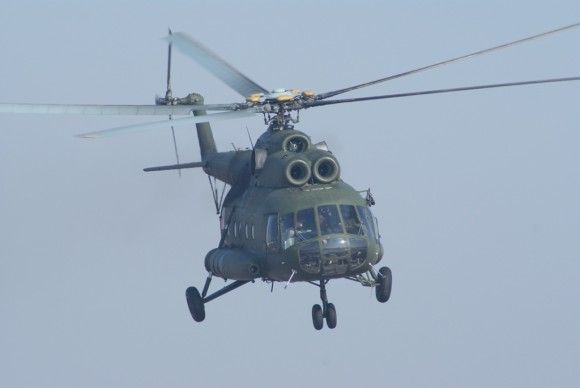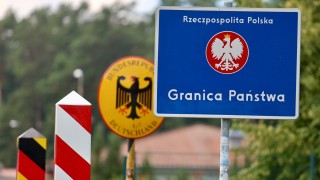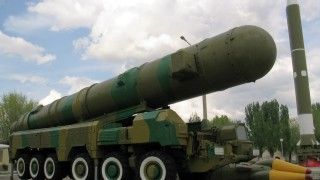- WIADOMOŚCI
- ANALIZA
New EU sanctions. "Russia is prepared to reduce the oil export"
Moscow prepares a scenario, which is to save Russia from sanctions, which may potentially be introduced by the Western countries. These would probably hinder the Russian oil export. Brussels, at the same time, claims that it watns to implement another set of elements of its restrictive policy targeted at Russia (since the former sanctions struck solely the Russian crude oil industry). What impact will the above events have on Warsaw?
Russian Minister of Economy, Alexei Ulyukayev, stated, on 14th November, that he believes in common sense of the world leaders, and he does not think that the sanctions against Russia will get worse. He stressed that his ministry, in some of the scenarios, took into account the fact that more restrictive measures may be taken by the West and that the ministry “prepares courses of actions for cases in which additional limitation of the Russian gas and crude oil export rates is possible”. It is an incredibly interesting statement, which correlates to the statement by the Head of the European Council, who, during the G20 summit in Brisbane, stated that “Russia still has an option of implementing the Minsk memorandums, choosing the de-escalation, which would consequently make it possible to revoke the sanctions. Should the Russians refrain from taking such course of action, we are prepared to consider additional measures”. Herman van Rompuy also precisely stated what course of actions he had in his mind: “We will still be using all the diplomatic tools [that may be useful in resolving the conflict] including the sanctions remaining at our disposal”. These words were a reaction to the increasingly more worrying situation in Donbas. They probably may be treated as a unified Western stance, since similar words have been used by the US Secretary of State, John Kerry.
It is worth to consider what meaning is carried along with the statements (which are probably related to one another) made by Ulyukayev and Van Rompuy. Both statements are constructed as diplomatic messages with a very precise meaning. It is hard to imagine that the new Western sanctions cover the LNG area, since the restrictions have been so far focused on the Russian crude oil sector. Not only do I mean official limitation of access to equipment or technologies for the Russian companies, but also behind-the-scenes actions, which have built up the mass reduction of the crude-oil prices globally. A logic step in expansion of the above restrictions would be possible in a form of implementing limitations within the scope of export capabilities of the Russian oil companies.
Up until now Poland has incurred moderate costs of the sanctions implemented on Russia by the EU. Groups which have suffered the most: fruit and vegetables industry and transport companies. Due to the tensions related to the Ukrainian conflict, the state PGNiG (Polish Oil and Gas Mining) company had to face the fact that Gazprom has limited the gas supply. However, reduction of the gas volume had no negative impact on the Polish Economy. In case when potential EU sanctions, targeted at the export of the Russian crude oil, are imposed, the situation may change.
PKN Orlen, which is the key company within the context of the Polish fuel market, fulfils a large part of its oil needs thanks to a long-term contract signed with Rosnieft (in case of the Lotos company, the situation is quite similar). Back in 2013 pipeline transport was the basic way resources were supplied to the refinery of the Płock-based company. In 2011 processing of the Russian REBCO oil in the above-mentioned facilities constituted 90% of their capabilities within that scope. Restrictions imposed by the EU on the export operations of the Russian oil tycoons would largely complicate the operations of their Polish counterparts. It is obvious that companies such as Orlen have, according to the legal requirements, resources which would make it possible to operate for 76 days without supply of the resources, however, in case the sanction are implemented for a longer period of time, these companies would have to take actions aimed at diversification of the resource supply sources.
What would be the cost of quick conversion of the state refineries, in order to enable them to process oils other than Rebco (which, luckily, is technically feasible)? What would the process of contracting of the non-Russian resources look like, when the EU needs of oil would be increased? Along with the Balkan states, the EU receives 60% of the Russian oil export. What would be the impact of the reduced supply from the Eastern sources on the financial condition of PERN – who is the operator of the Friendship oil pipeline? Would the oil terminal in Gdansk, under increased load, be capable of providing proper efficiency when it comes to introducing the resources into the transport network, and meeting the needs of Orlen and Lotos. The process aiming at enhancing its capabilities within that scope is currently on the go. The questions above are worth to be answered, even today, in the light of the words spoken by Ulyukayev and Van Rompuy.















